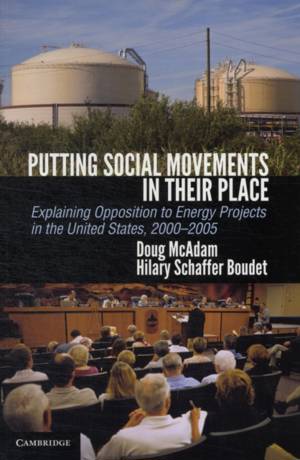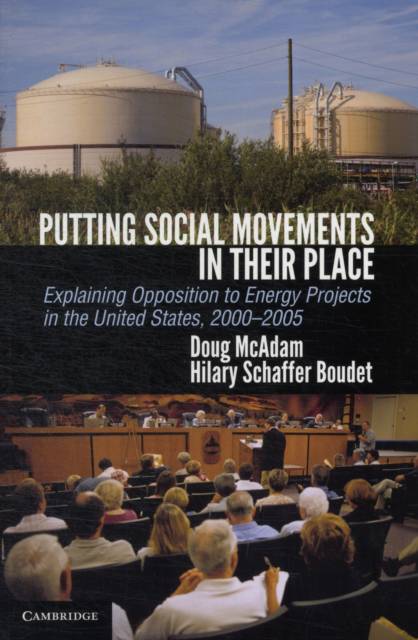
- Afhalen na 1 uur in een winkel met voorraad
- Gratis thuislevering in België vanaf € 30
- Ruim aanbod met 7 miljoen producten
- Afhalen na 1 uur in een winkel met voorraad
- Gratis thuislevering in België vanaf € 30
- Ruim aanbod met 7 miljoen producten
Zoeken
Putting Social Movements in Their Place
Explaining Opposition to Energy Projects in the United States, 2000–2005
Doug McAdam, Hilary Boudet
€ 48,95
+ 97 punten
Uitvoering
Omschrijving
The field of social movement studies has expanded dramatically over the past three decades. But as it has done so, its focus has become increasingly narrow and "movement-centric." When combined with the tendency to select successful struggles for study, the conceptual and methodological conventions of the field conduce to a decidedly Ptolemaic view of social movements: one that exaggerates the frequency and causal significance of movements as a form of politics. This book reports the results of a comparative study, not of movements, but of 20 communities earmarked for environmentally risky energy projects. In stark contrast to the central thrust of the social movement literature, the authors find that the overall level of emergent opposition to the projects to have been very low, and they seek to explain that variation and the impact, if any, it had on the ultimate fate of the proposed projects.
Specificaties
Betrokkenen
- Auteur(s):
- Uitgeverij:
Inhoud
- Aantal bladzijden:
- 280
- Taal:
- Engels
- Reeks:
Eigenschappen
- Productcode (EAN):
- 9781107650312
- Verschijningsdatum:
- 7/05/2012
- Uitvoering:
- Paperback
- Formaat:
- Trade paperback (VS)
- Afmetingen:
- 152 mm x 226 mm
- Gewicht:
- 385 g

Alleen bij Standaard Boekhandel
+ 97 punten op je klantenkaart van Standaard Boekhandel
Beoordelingen
We publiceren alleen reviews die voldoen aan de voorwaarden voor reviews. Bekijk onze voorwaarden voor reviews.











